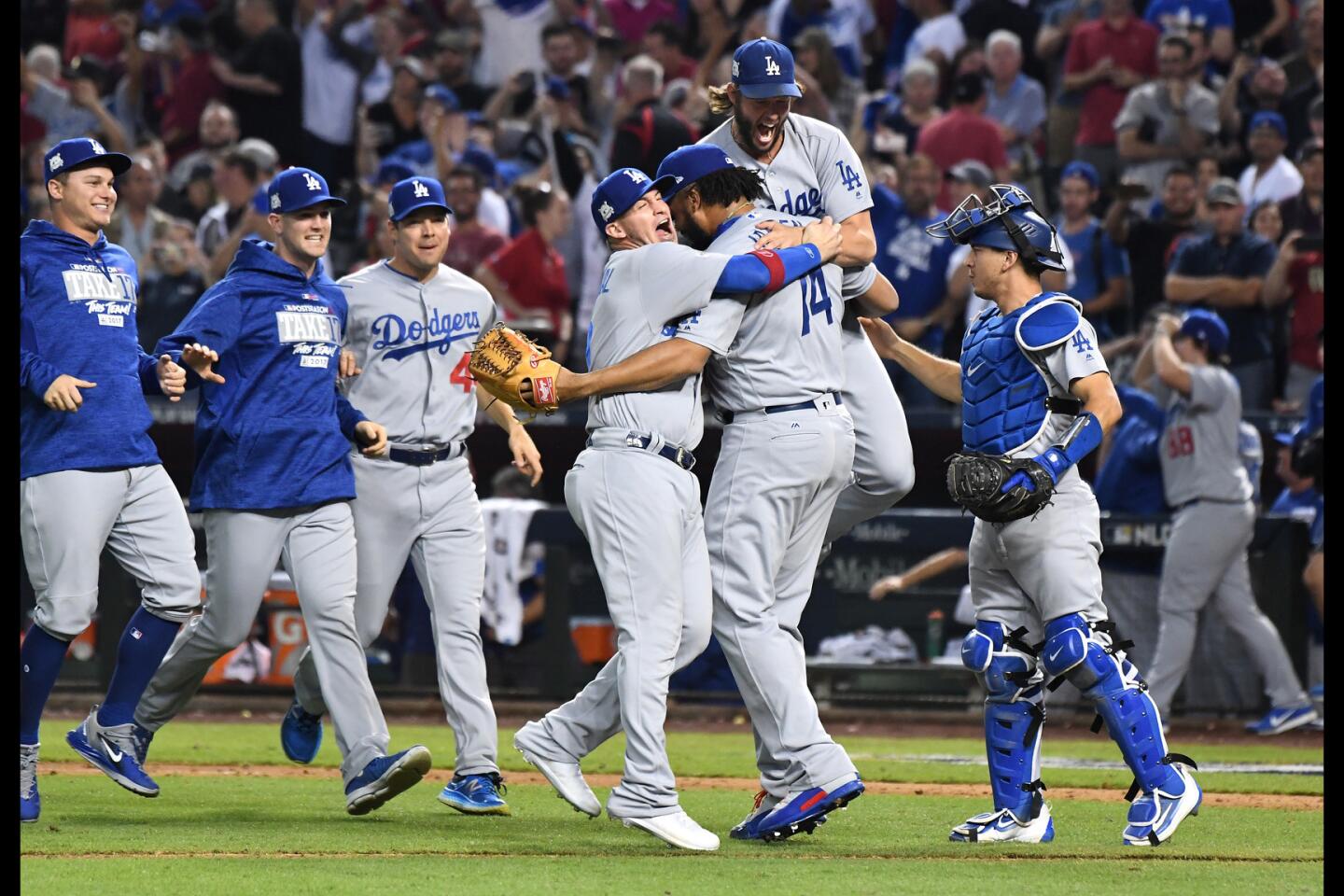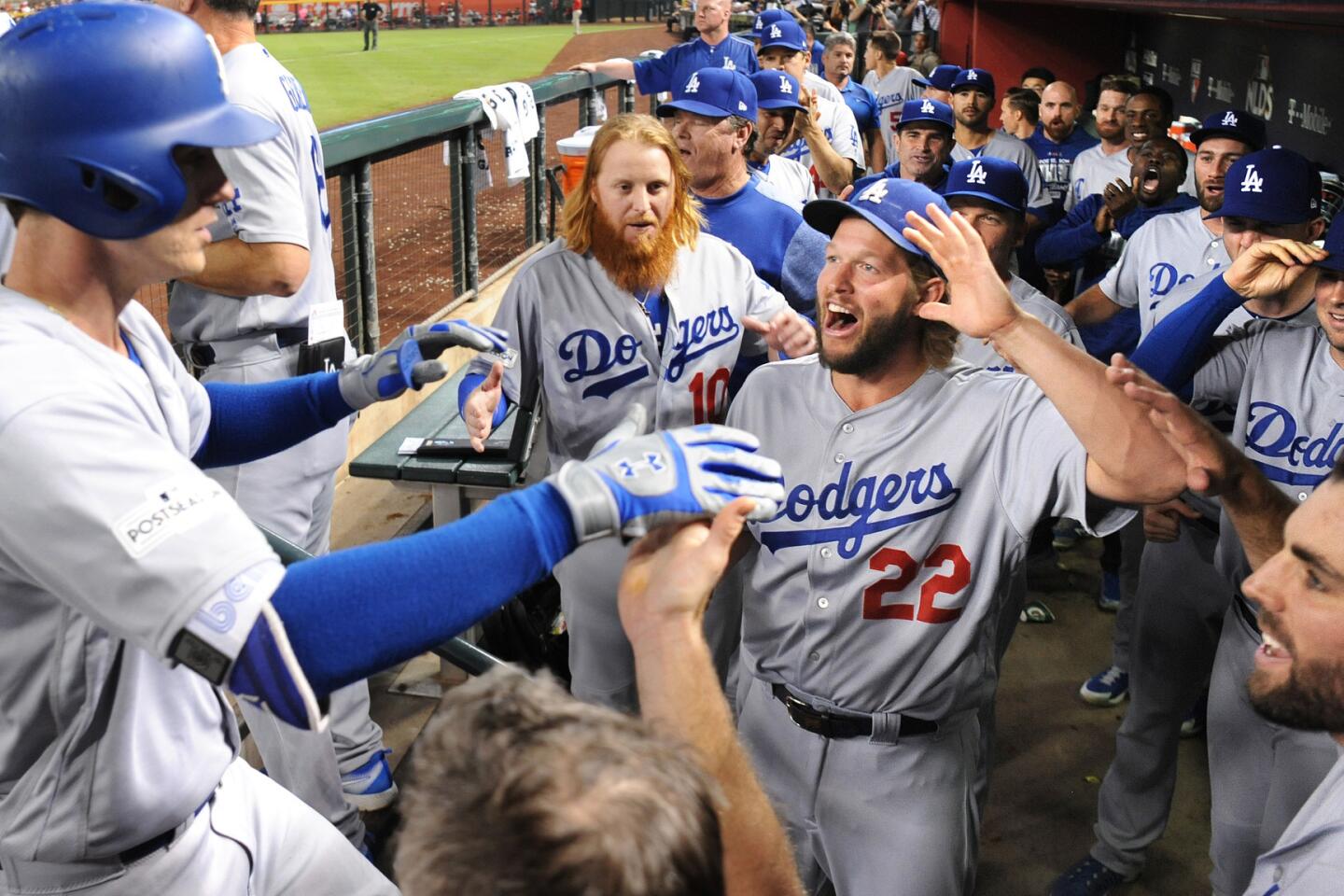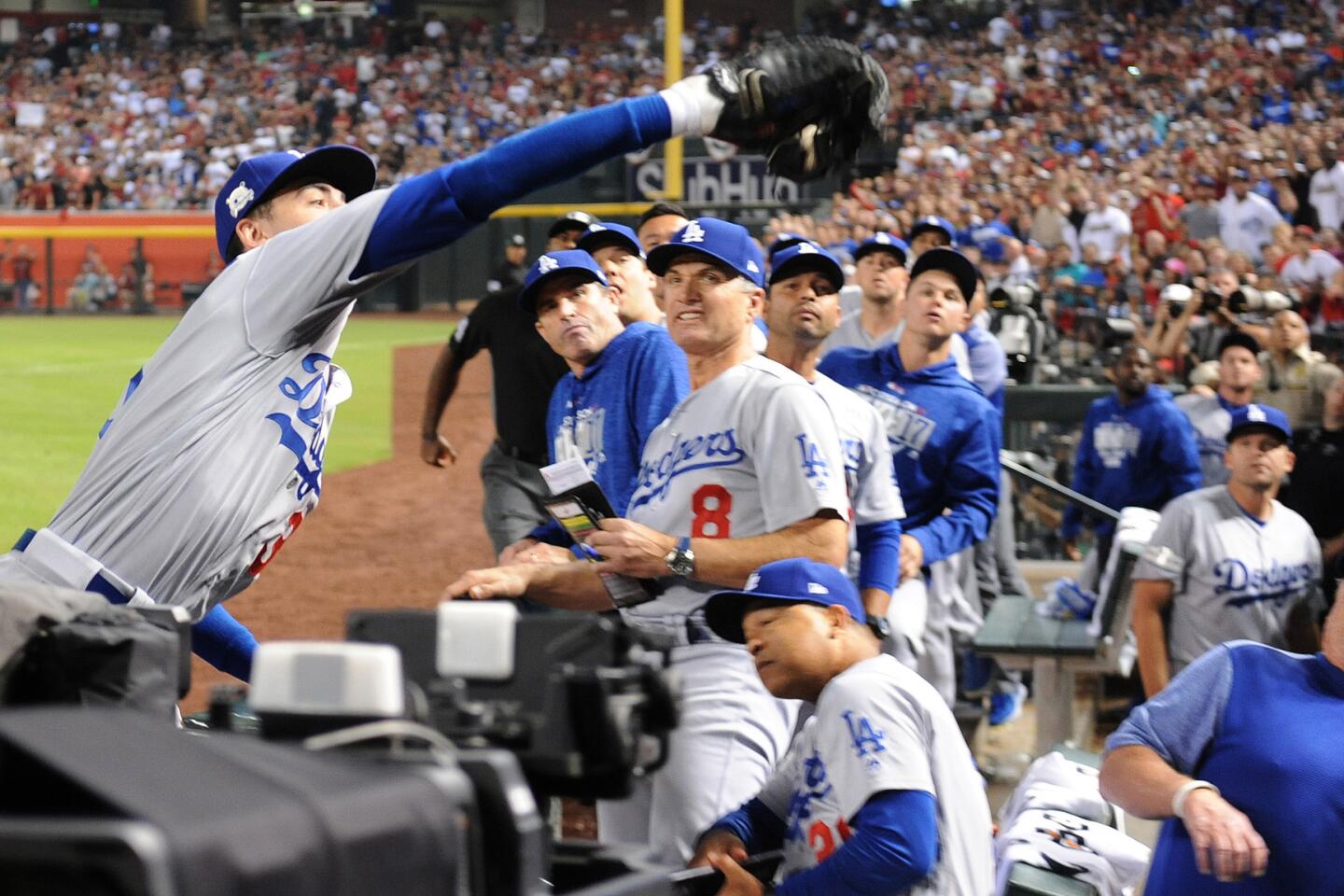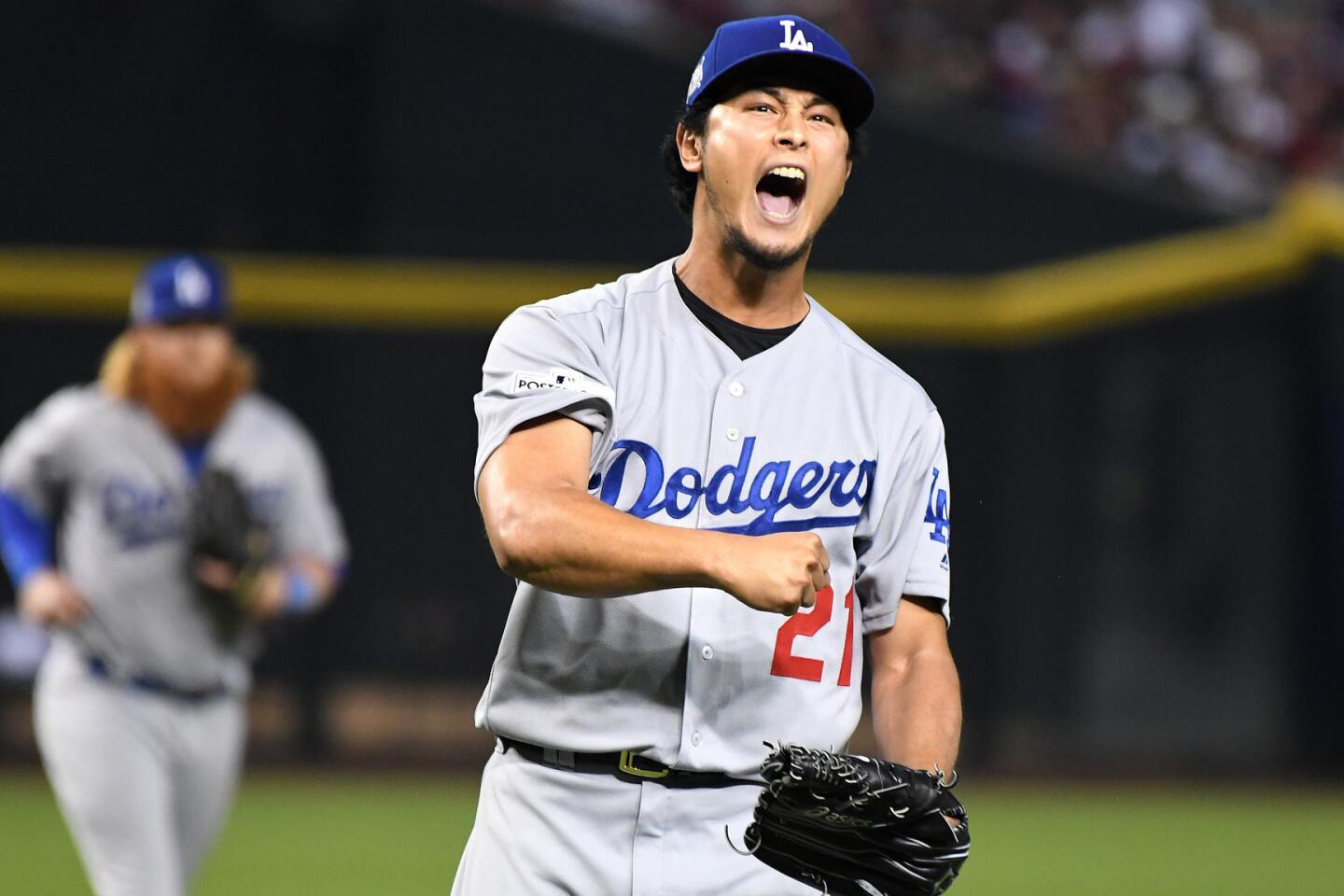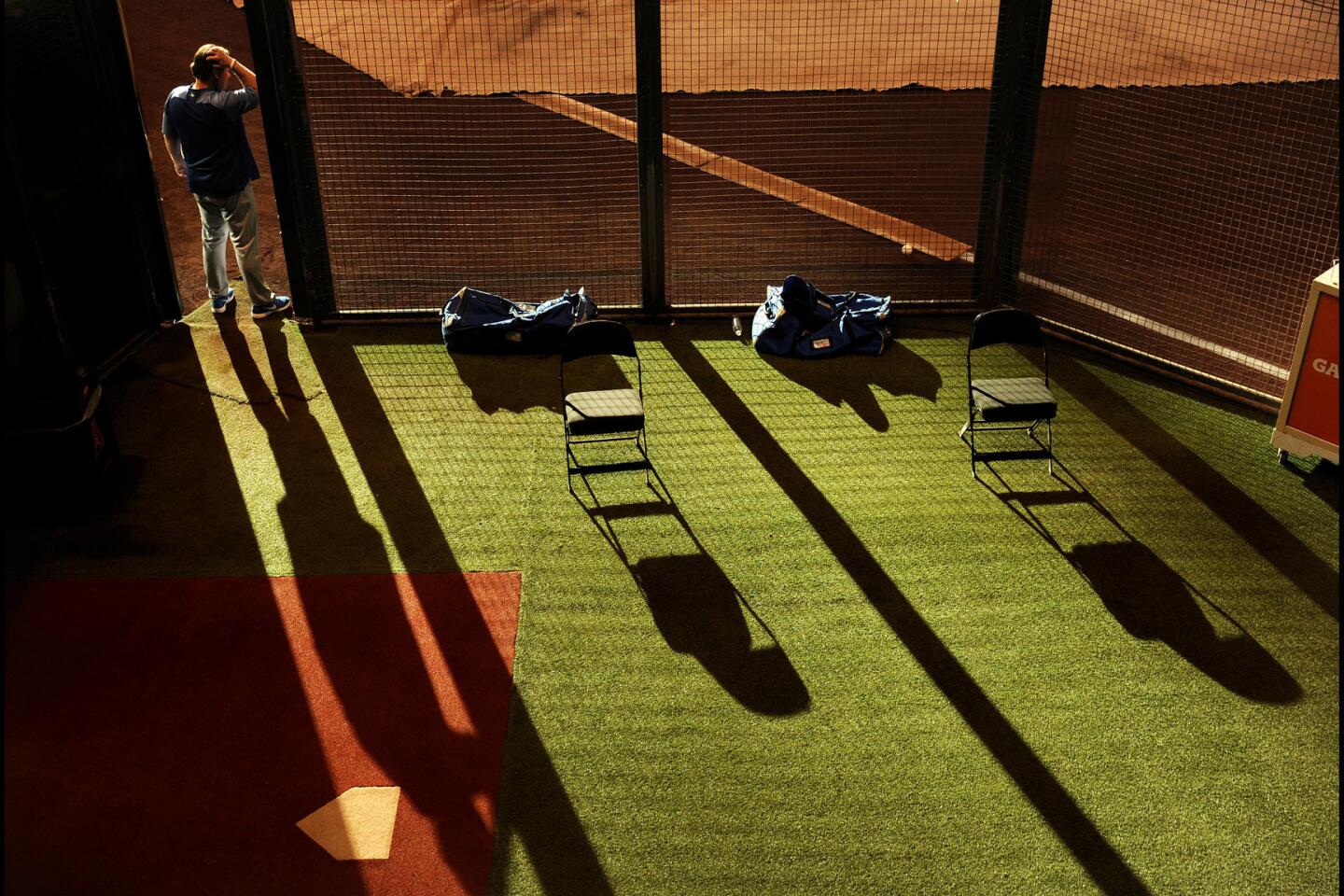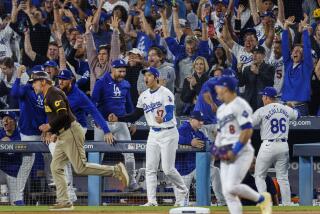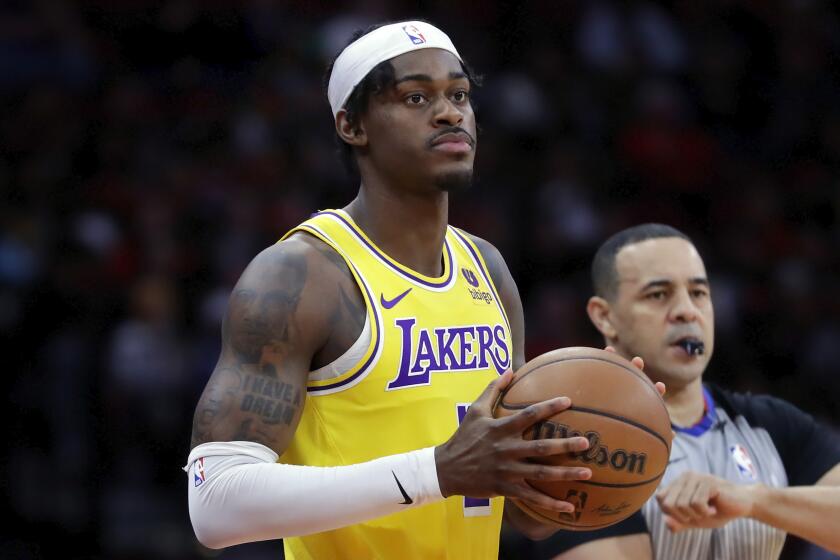Column: Dodgers’ decision to let Zack Greinke walk was pitch perfect
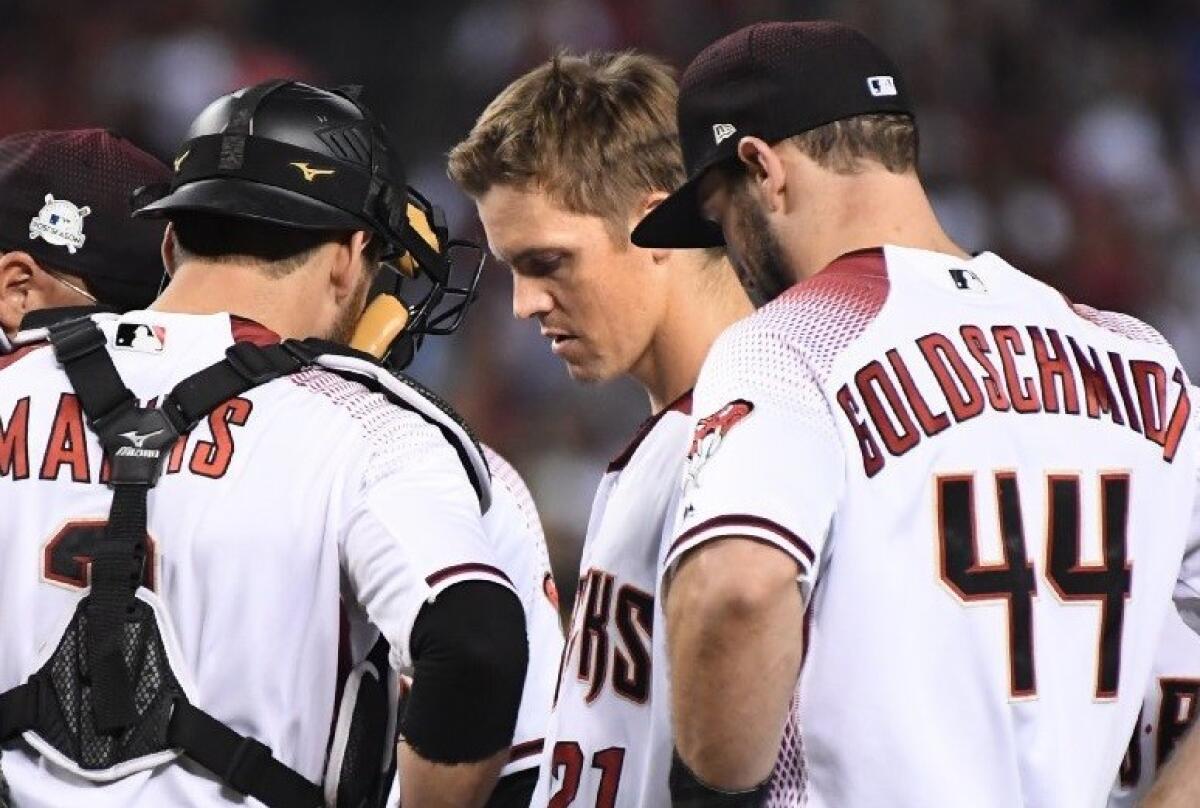
- Share via
Reporting from Phoenix — His head bowed, Zack Greinke stepped down from the mound and walked toward the Arizona Diamondbacks bench.
His night was over. His team’s season was about to be, too.
Greinke’s role in the Diamondbacks’ demise can’t be understated. No player on either team was as responsible for the Dodgers’ three-game sweep in this National League division series. What Madison Bumgarner did in leading the San Francisco Giants to the World Series in 2014, Greinke did the exact opposite over the past week.
So this is about as good a time as any to concede that Andrew Friedman was right when he decided to not re-sign him two years ago.
The decision was more divisive than any decision Friedman has made in his three-year reign as the Dodgers president of baseball operations — more than his trade of onetime franchise cornerstone Matt Kemp, more than his signings of injury-prone Scott Kazmir and Brandon McCarthy, more than his refusal to pursue Cole Hamels or Chris Sale.
Greinke exercised the escape clause in his contract after the 2015 season, voiding the final three years of his deal to become a free agent. The Dodgers offered him close to $160 million over five years to stay. The Diamondbacks swooped in with a six-year proposal worth $206.5 million. Friedman didn’t want to match that.
In the wake of Greinke’s departure, one Dodgers executive argued they could trade for pitchers of similar quality, if their situation in any particular season required them to do so. This concept of a rent-an-ace was suspicious, in large part because of the Dodgers’ known reluctance to part with their high-end prospects.
But here they were Monday night at Chase Field, their plan unfolding as they envisioned, with trade-deadline reinforcement Yu Darvish outperforming Greinke with a place in the NL Championship Series at stake.
“I went in with the feeling of wanting to stop their breath,” Darvish said in Japanese. “I didn’t want to let them win even one game.”
Darvish retired 14 of the first 15 batters he faced, the exception being Ketel Marte who reached base on a bunt single in the first inning. He attacked left-handed batters with his cutter, right-handed batters with his four-seam fastball that touched 98 mph. He finished them with his wipeout slider.
Darvish allowed only one run in five-plus innings, on a solo home run by Daniel Descalso. He departed from the game in the bottom of the sixth inning with 3-1 lead.
Soaked in champagne after the game, the best pitcher in the world nodded in approval.
“I was very impressed,” Clayton Kershaw said. “It’s the best we’ve seen him. The command that he had was second to none.”
Kershaw was instrumental in helping the ever-meticulous Darvish simplify his approach.
“When I’ve watched Yu, his stuff is unbelievable,” Kershaw said. “It’s just having the confidence to say, ‘I’m going to get you out.’”
Friedman was right in gambling he could land a pitcher of Darvish’s quality at a reasonable cost. He was also right to not overestimate Greinke’s ability as a big-game pitcher.
A franchise like the Dodgers doesn’t sign a pitcher like Greinke for the 17 games he won this year in the regular season. They sign a pitcher like him with October in mind.
And Greinke had a brutal postseason.
Before this division series even started, Greinke decimated whatever chance the Diamondbacks had of upsetting his former team.
Greinke was appointed to start the wild-card game against the Colorado Rockies and inexplicably fell apart in the fourth inning. His inability to get out of the inning started a cataclysmic chain of events for the Diamondbacks, who were forced to use No. 2 starter Robbie Ray as a reliever.
The Diamondbacks won the game, but their rotation was now in shambles. Their starter for the opening game of the division series was Taijuan Walker, who admitted he retreated to the locker room during the wild-card game because he was too nervous to watch. Predictably, Walker was hammered by the Dodgers, who scored four runs against him and forced him out of the game after only one inning.
Greinke’s troubles continued Monday. He started the game by serving up a double to Chris Taylor, who later scored on a groundout by Cody Bellinger to move the Dodgers in front 1-0. Greinke threw 29 pitches in the first inning. Of the first eight Dodgers he faced, five of them worked the count full. By the end of the third inning, Greinke’s pitch count was at 70.
Greinke gave up a solo home run to Bellinger in the fifth inning and another to Austin Barnes in the sixth. He didn’t record a single out in the sixth.
In the process, the long-standing argument was settled. Friedman was vindicated.
Follow Dylan Hernandez on Twitter @dylanohernandez
More to Read
Go beyond the scoreboard
Get the latest on L.A.'s teams in the daily Sports Report newsletter.
You may occasionally receive promotional content from the Los Angeles Times.


